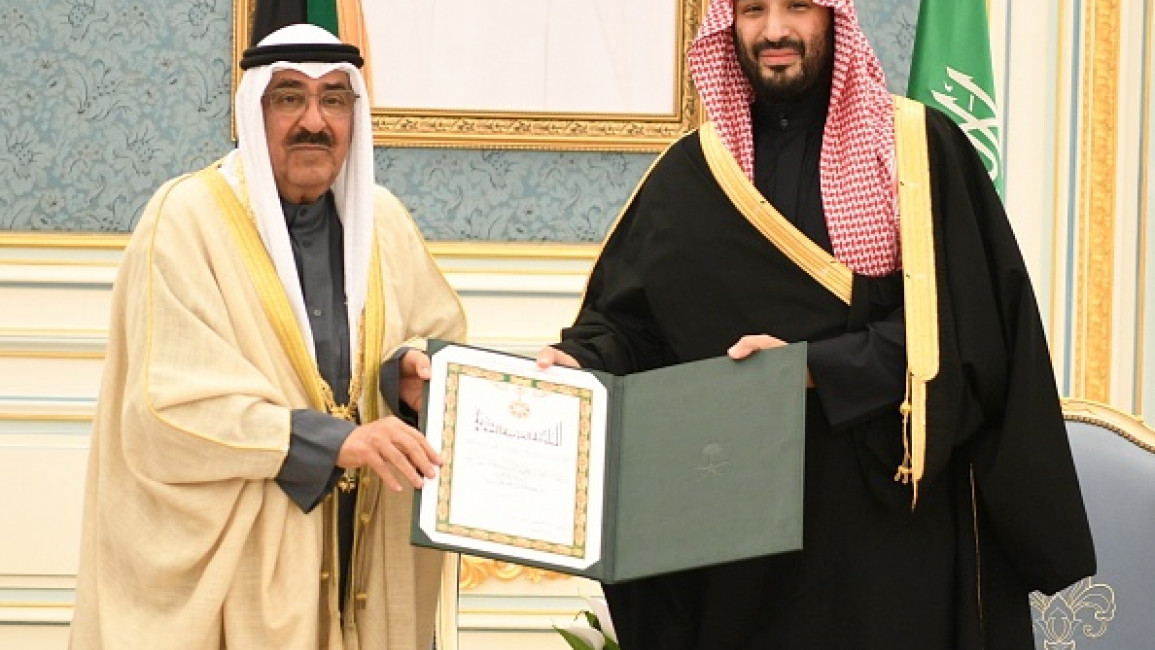Saudi Arabia, Kuwait reaffirm 'exclusive ownership' of contested Durra gas field
Saudi Arabia and Kuwait have reaffirmed their exclusive ownership of the Durra gas field in the Gulf, in a move likely to inflame tensions with neighbouring states.
The two countries released a joint statement asserting their ownership of the gas field following a visit on Tuesday by Kuwait’s Emir Mishal Al-Ahmad Al-Jaber Al-Sabah to Riyadh, where he met Saudi Arabia's King Salman and Crown Prince Mohammad bin Salman.
Iran also claims part of Durra, which it calls Arash, and called for negotiations on ownership of the eastern area of the gas field.
"The entire Durra field is located in the marine areas of the State of Kuwait, and ownership of the natural resources in the divided submerged area, including the entire Durra field, is jointly owned by the Kingdom of Saudi Arabia and the State of Kuwait only, and they alone have full rights to exploit the wealth in that region," their statement read.
Kuwait and Riyadh also renewed calls for Iraq to honour the Khor Abdullah maritime agreement ratified by Iraq and Kuwait in 2013 and later submitted to the UN, which the Iraqi Supreme Court nullified last year.
"The two sides also called on Iraq to adhere to the agreement regulating maritime navigation in Khor Abdullah signed between the State of Kuwait and the Republic of Iraq," the statement said.
Saudi Arabia and Kuwait have consistently stressed "exclusive rights" over the field, which has about 220 billion cubic metres (seven trillion cubic feet) of recoverable reserves.
Iran has historically denied exclusive Saudi and Kuwaiti control over the field, claiming partial ownership over it.
In late June, the managing director of the National Iranian Oil Company said Tehran was ready to start drilling on the Iranian side of the joint gas field.
"Iraq has superior rights in the Durra-Arash offshore gas field compared to Kuwait, Saudi Arabia, and Iran," Jamal al-Halbousi, the former head of Iraq's delegation for border and maritime negotiations with Kuwait, argued during an interview. Read ⬇️https://t.co/t66PxDTgCV pic.twitter.com/XpTpiHlv4G
— The New Arab (@The_NewArab) December 5, 2023
Iranian officials have been less vocal about the issue in recent months, and domestic critics have called on the government to "defend Iran's rights" on the issue.
Iran and Saudi Arabia agreed last year to restore their diplomatic ties which had been cut in 2016.
Iraq and Kuwait have had a rocky relationship for decades particularly after Saddam Hussein ordered the invasion of Kuwait in 1990, sparking the First Gulf War.


![President Pezeshkian has denounced Israel's attacks on Lebanon [Getty]](/sites/default/files/styles/image_684x385/public/2173482924.jpeg?h=a5f2f23a&itok=q3evVtko)



 Follow the Middle East's top stories in English at The New Arab on Google News
Follow the Middle East's top stories in English at The New Arab on Google News


